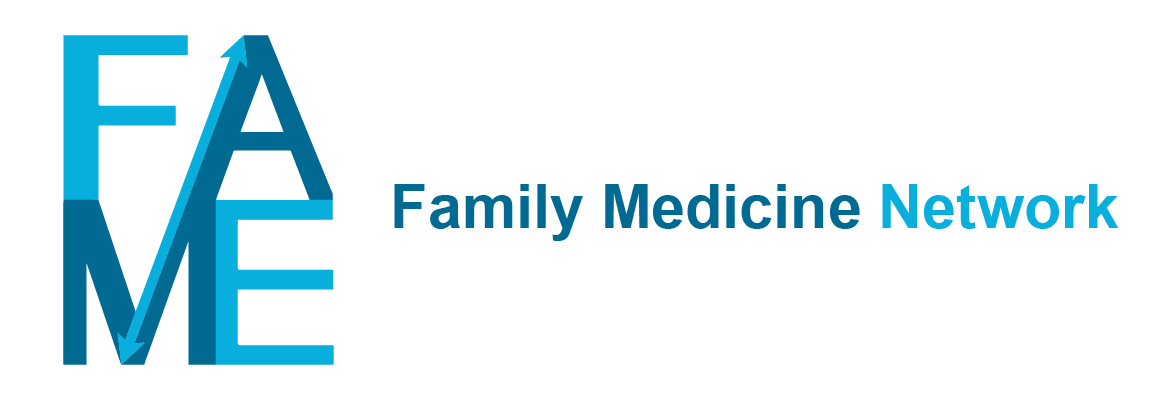A gastrointestinal infection or gastroenteritis is an infection of the stomach and / or intestines. Symptoms include nausea, vomiting, abdominal pain and watery diarrhoea. Fever may also occur. Symptoms can range from mild to severe. Dehydration is the most serious but rare complication.
Gastrointestinal infection usually has a viral cause, with norovirus being the most common pathogen. Other viral causatives are rotavirus and enteric adenovirus. Bacteria (S. aureus, C. jejuni, Shigella spp., Salmonella spp.), parasites (Giardia, Cryptosporidium) or bacterial toxins may also cause gastroenteritis.
The infection can be caught by eating contaminated food, drinking contaminated water or by close contact with an infected person (norovirus).
In uncomplicated cases, treatment is conservative. Faeces investigation to determine the causative agent is only advised in seriously ill patients (e.g. persistent fever), in immunocompromised patients, or when the risk of infecting others is increased (e.g. employees in the food industry or in healthcare).
Treatment involves getting enough fluids. For mild or moderate cases, this can be achieved by drinking fluids slowly, frequently and in small amounts, because drinking too much too fast can cause vomiting. Oral rehydration solution (ORS), a combination of water, salt and sugar, is used to treat moderate dehydration. It is also worth considering an interruption of diuretics and renin-angiotensin system blockers and to be attentive to hypoglycaemia in patients using blood glucose lowering medication. Dehydration may also cause increased serum levels of medication (lithium). Consider that medication absorption may be reduced. Extra attention for hygiene is recommended.
Anti-diarrhoeal medication may be helpful to relieve symptoms.
Antibiotics should only be considered in case of serious illness (e.g. persistent or high fever, rectal bleeding) or in immunocompromised patients, in addition to ORS. In these cases, antibiotics are preferably prescribed based on the culture result or possibly after consultation with a microbiologist / infectiologist. Referral is needed in patients with serious general illness, severe dehydration (confusion, increased breathing effort, severe hypotension), increased risk of a severe course or in unsuccessful attempts for rehydration. Babies younger than three months with (suspected) dehydration should be referred.
Gastroenteritis of presumed infectious origin, without demonstration of a specific causative agent, is recorded with the ICPC code D73. A gastroenteritis caused by a demonstrated micro-organism (e.g. Campylobacter, Giardia, Salmonella, Shigella) is coded D70. The symptom diagnosis for diarrhoea (without an evident infectious cause) is coded D11 and for vomiting it is D10.
Gastroenteritis as presumed infection (D73) has an incidence of 14.3 per 1000 patient years, which means the GP records 14 new diagnoses of gastroenteritis per 1000 patients per year. Incidence is highest in patients 0-4 years of age and there are more than 70 new diagnoses per 1000 patient years in this age group. Link/Figure 1
Except for with the youngest age group (0-4), women end up seeing their GP slightly more often for gastro-enteritis than men. Presumed gastrointestinal infection (D73) is one of the most common conditions for which parents of young children (0-4 years of age) seek medical help from their GP, after respiratory infection, otitis media, fever, impetigo and cough. Link/Table 2
A proven gastrointestinal infection (D70) has an incidence of 3.1 per 1000 patient years, with a quite similar distribution over age and sex groups. Link/Figure 3
Prevalence of presumed gastrointestinal infection (D73) is 14.9 per 1000 patient years, meaning that among 1000 patients in a year almost 15 persons seek help from their GP for gastroenteritis. Link/Figure 4
Prevalence of proven gastrointestinal infection (D70) is 3.6 per 1000 patient years. The similar numbers of incidence and prevalence show that most episodes of gastrointestinal infection are dealt with in a short period of time.
The most common initial reason for encounter (RFE) for gastroenteritis is diarrhoea (D11), followed by vomiting (D10). The condition is easily self-diagnosed as the third most common RFE is gastroenteritis (D73). Link/Table 5
In the age group 0-4 years, fever (A03) is the third most common RFE, while this RFE is less commonly mentioned in older age groups. Link/Table 6
In most episodes of gastrointestinal infection, a medical examination is performed by the GP, and health education / advice is provided. Medication is prescribed only in 14% of episodes. Link/Table 7 Referrals to secondary care (*67) are needed sporadically (in 5% of all episodes) and occur mainly in the youngest children (age 0-4: 7% referrals, Link/Table 8) and the elderly (75+: 6% referrals). Link/Table 9
The prescribed medication types are predominantly anti-emetics: propulsives (A03FA, e.g. metoclopramide, domperidone) and serotonin antagonists (A04AA, e.g. ondansetron). Other common prescriptions are proton pump inhibitors (A02BC) and antipropulsives (A07DA, e.g. loperamide). Antibiotics are seldomly prescribed. Link/Table 10 Note that only medication prescribed by the GP is recorded, not medication bought ‘over the counter’.
Referrals to paediatrics, internal medicine and gastroenterology are recorded. Link/ Table 11
Dutch guideline: https://richtlijnen.nhg.org/ standaarden/acute-diarree#volledige-tekst (2014)
LaRocque R, Harris JB. Causes of acute infectious diarrhea and other foodborne illnesses in resource-rich settings. In: UpToDate, Calderwood SB, Baron EL (Eds), UpToDate, Waltham, MA, 2023
